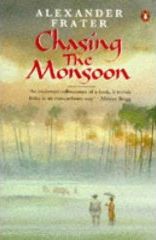
Rating: 3/4 (Pretty useful)
Anyone who has tried some method of personal productivity in the last few years is bound to have heard of Getting Things Done or GTD, as it is popularly known. I heard about GTD though the productivity methods which I currently use, Zen To Done (ZTD) and Inbox Zero, both of which are heavily influenced by GTD. So, for a long time it was quite disconcerting for me to keep procrastinating from reading the book that started all of this, Getting Things Done, written by David Allen. In contrast to its fandom on the internet, the book is actually quite old, published in 2002. It has not undergone any major editions or changes since then. That could be seen as a testament to the broad sweep and generality of the GTD method.
What David Allen tries to attempt in GTD is to help you set up a system which helps offload every last little nagging task from your mind. His core premise being that, a task, no matter how tiny or inconsequential it is, drills away in a dark corner of the human mind unless it is put down in a place which the mind (itself) has confidence in. Keeping many of such tasks in the mind (which is what we all tend to do) affects the focus on the current task and makes the tasks highly susceptible to be forgotten.
GTD grapples with this problem by setting up a system which (1) captures all tasks as they emerge in the mind (2) process them sometime later (3) organizes them into lists or calendar events and (4) periodically reviews them. One of the key insights comes in the processing stage where Allen suggests that you (1) delete or archive a task if it is not important (2) delegate it if that is possible (3) do a task immediately if it can be done in a few minutes or (4) defer it by putting it on a list. The underlying idea everywhere being to free the mind of tasks it has to remember and also to clear the lists of tasks as quickly and by as much as possible.
The book is broken into three sections. The first two sections which explain the above system seem to me most interesting and as having the most takeaway. I found the last section to be quite vague on details. I like the fact that David Allen sticks to laying the groundwork for a system without getting into the nitty-gritty of specifying the actual tools for that job. That means that you can use any medium that you are comfortable with for the job, from paper to personal organizers to computers and online tools. And in fact, lots of online fora and software have sprung up today around the diverse implementations of GTD.
“You can lead a horse to water, but you cannot make it drink,” goes an old saying. GTD ensures that the horse is brought to the water, but it does not (or as Allen insists, it cannot) help with the drinking. There are a few aspects of GTD which I could not fully understand, especially that surrounding projects. Allen is very particular about a weekly review for the system, but does not say anything about when to process or how to pick the next action. Also, given a fully cranking GTD system, it still cannot indicate what tasks might be important in a given day. (I find that most of these lacunae are fixed in ZTD and Inbox Zero.)
Whether I can completely incorporate the GTD system in my workflow is doubtful. My current system, a hybrid monster of ZTD (for tasks) and Inbox Zero (for email), has worked pretty well for me. But, after reading this book and related online articles about GTD, I am able to notice, and attempt to fix the places where I needed better capture and processing. All in all, GTD is a good book to get initiated into the framework of freeing the mind from being a TODO list. I recommend this book for anyone who is looking at improving the productivity in their life.


